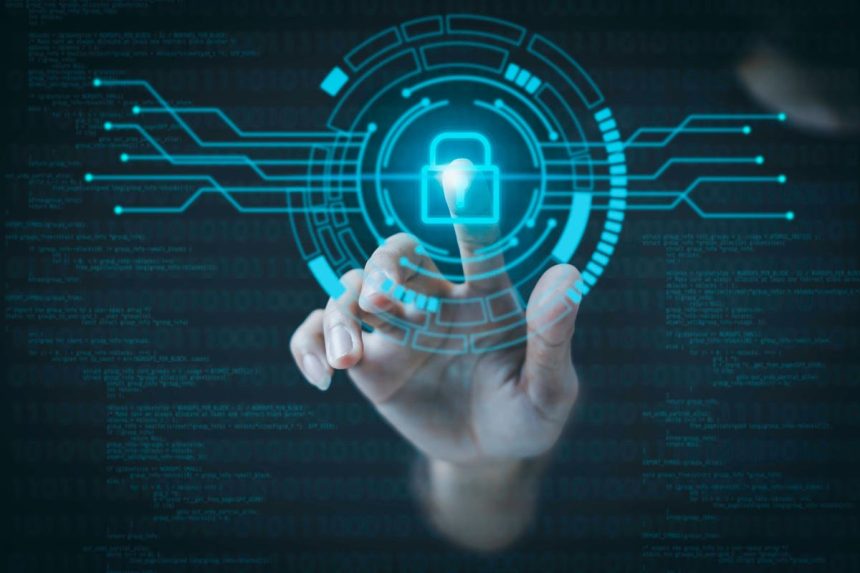Alexander Ray, CEO & cofounder of Albus Protocol, a regulation-compliant DeFi framework for public blockchains.
In the digital age, the protection of personal data has become a paramount concern for individuals and governments alike. Amidst growing privacy breaches and data vulnerabilities, I see promise in the application of zero-knowledge proof (ZKP) for businesses to help remedy these issues.
From my own company’s use of the ZKP method for transactions, I’ve seen how the technology can enable you to retain control over your personal information and facilitate secure interactions with other businesses and institutions.
An Introduction To ZKP
Zero-knowledge proof is a cryptographic protocol that enables users to demonstrate their knowledge or the validity of specific information without revealing the underlying documents or facts that support it.
For instance, let’s consider the scenario where Alice wishes to order a drink at a bar but doesn’t have her ID with her. However, she possesses a unique certificate issued exclusively to individuals on their 18th birthday. Using this certificate, Alice can prove that she is old enough to order a drink without revealing her ID or divulging sensitive details like her exact date of birth or ID number.
Another example of ZKP involves the classic locker problem within a secretive community. Members of this community are prohibited from openly acknowledging their membership. However, two individuals from the community need to verify each other’s membership. Fortunately, the community has a special locker accessible only to its members, who know the code. Both individuals can place an item in the locker and subsequently verify that the other person has also left something behind. This mutual verification confirms that both individuals are indeed telling the truth about their membership.
Safeguard Data
One of the key benefits of this technology is its ability to safeguard information in the event of a cyber breach. Traditional security measures often store sensitive data in central databases or servers, making them prime targets for hackers seeking valuable information.
However, organizations using ZKP do not have to store sensitive information in a vulnerable centralized location; hence, they avoid the associated risk altogether, which renders their corporate information assets useless to hackers even if they manage to breach the organization’s systems.
Follow Requirements
Another key benefit of ZKP technology lies in its ability to assist businesses in meeting the stringent requirements of data protection regulations. Organizations in industries subject to privacy regulations often struggle to ensure compliance while still delivering seamless customer experiences. By adopting ZKP, businesses can better strike that delicate balance between safeguarding sensitive data and minimizing the collection and storage of personal information.
The General Data Protection Regulation (GDPR), for instance, mandates that organizations only collect and process personal data that is necessary for a specific purpose. With ZKP, businesses can verify and authenticate users without the need to expose or store their personal data. By implementing protocols that allow for secure verification without revealing sensitive information, organizations can ensure compliance with data protection regulations while delivering efficient and seamless user experiences.
ZPK For Various Systems
I’ve found that ZKP holds tremendous potential across various business sectors, revolutionizing operations and enhancing data privacy and security. In the banking industry, ZKP can transform customer authentication. Financial institutions can verify details of customers, such as age, creditworthiness or account balances, without accessing their sensitive personal data. This ensures secure transactions and mitigates the risks of identity theft and fraud.
Several governments have recognized the potential of ZKP for safeguarding personal data and have begun embracing this technology in their operations. Estonia, renowned for its e-governance initiatives, has integrated ZKP into its digital identity infrastructure. This approach allows citizens to share specific attributes, such as age or address, with service providers while retaining full control over their personal information.
Singapore is another government at the forefront of ZKP adoption and is even considering decentralizing its MyInfo platform, which enables citizens to store and selectively disclose personal data to authorized entities. By employing ZKP, individuals can share information relevant to specific transactions, which helps ensure data privacy and reduces the risk of data breaches.
Moreover, the European Union is discussing the use of ZKP for digital IDs. This will let the users have full control of their data and decide for themselves which information they want to disclose.
The Future Of ZPK
The potential applications of ZKP extend far beyond the current use cases, offering promising avenues for secure and privacy-centric interactions. For instance, ZKP can revolutionize the process of providing proof of income for loans. Individuals can authenticate their income without revealing detailed financial information or compromising their privacy. This streamlined approach can enhance the efficiency of loan processing while protecting sensitive data.
ZKP can further facilitate the secure sharing of personal documents. Individuals can selectively disclose specific parts of their credentials, such as educational degrees or professional certifications, to interested parties, eliminating the need for sharing complete documents.
Overall, ZPK technology can provide an additional layer of privacy and security for business owners. By leveraging cryptographic protocols, the technology helps businesses verify user compliance with policies without accessing personal documents, thereby ensuring data confidentiality, reducing liability and building trust with customers in a privacy-conscious manner.
I see ZKP technology as a transformative leap forward in data protection. It has the potential to empower governments to preserve personal privacy while ensuring the seamless functioning of essential services. By embracing ZKP, institutions in various sectors can ensure trust and transparency, fostering a secure digital ecosystem.
As we face mounting challenges in safeguarding personal data, I believe it is crucial that more leaders look into ZKP as a fundamental tool for secure data access and privacy preservation.
Forbes Business Council is the foremost growth and networking organization for business owners and leaders. Do I qualify?
Read the full article here


